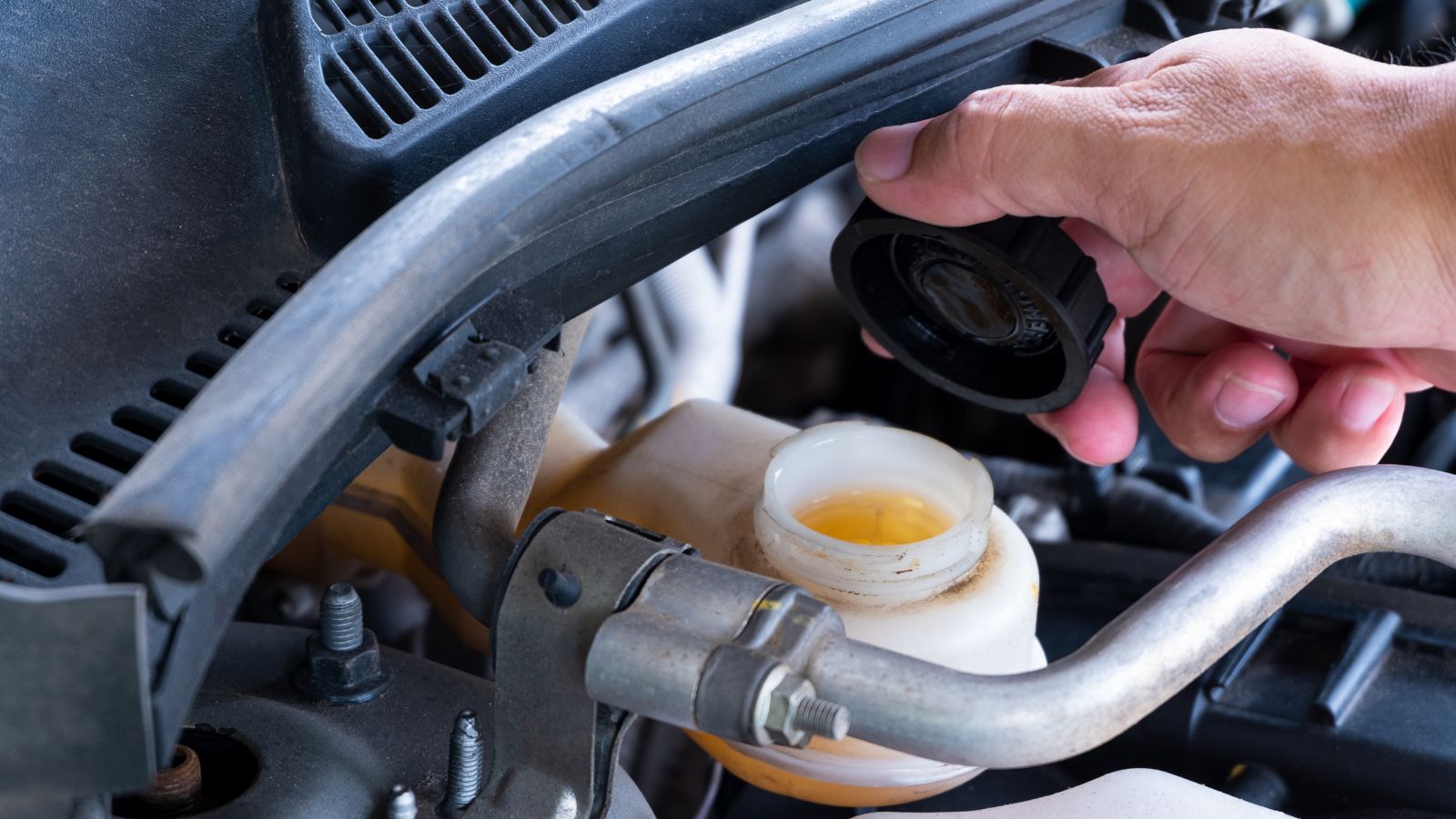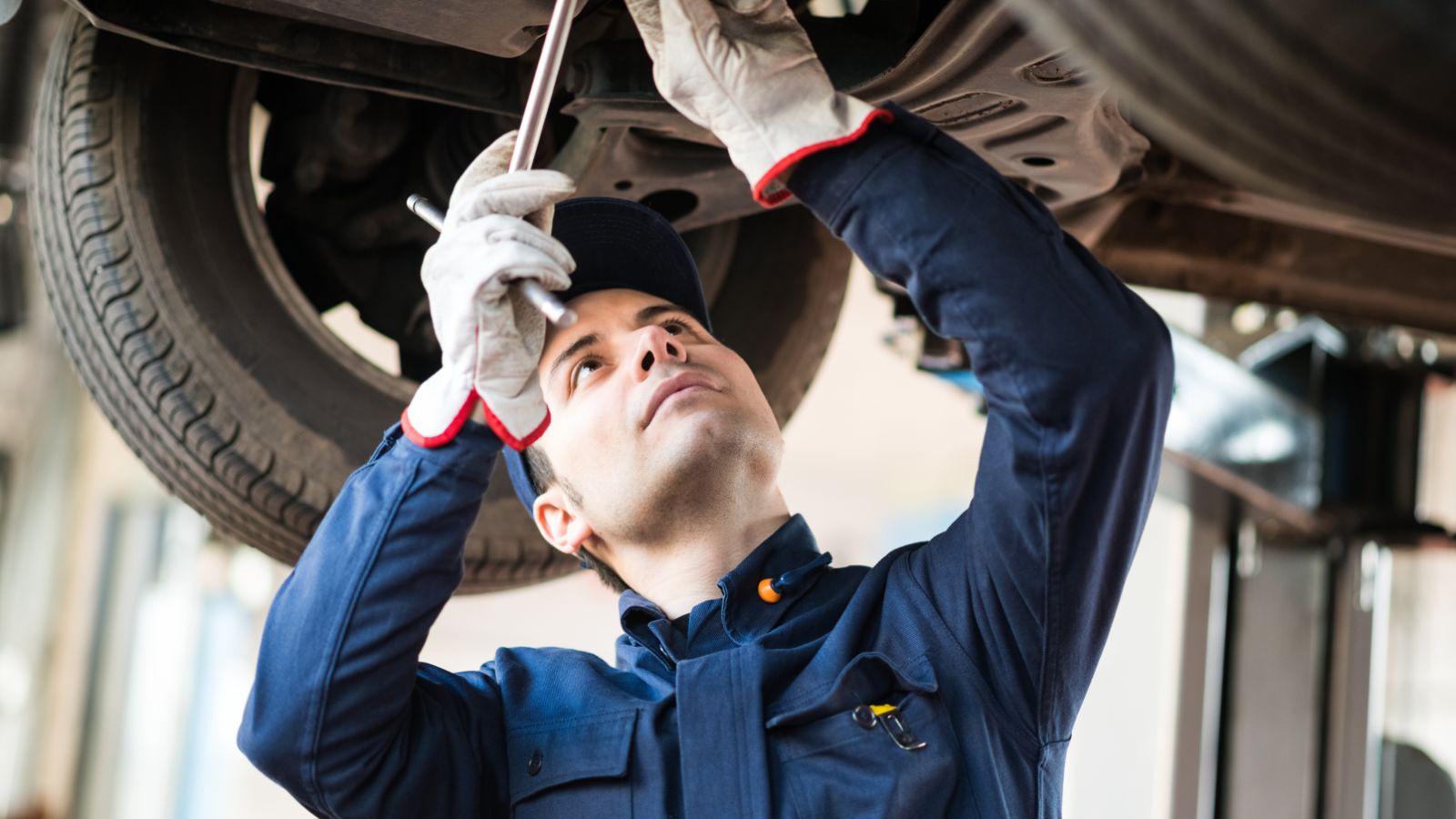These car tips from self-styled experts will do more harm than good to your car. Car mechanics warn against following these 18 outdated, inaccurate, and even dangerous tips, which are still widely circulated.
More Engine Oil Is Better

Adding too much oil to your car engine will create excessive pressure that will escape through gaskets and seals, potentially causing them to fail and leading to costly repairs. It can also cause the level in the oil pan to become too high, which can cause the crankshaft to aerate the oil, leaving it unable to lubricate the engine properly.
Wash Your Engine Regularly with Water

Water isn’t a good way to clean most engines. While most modern cars have waterproof housings across their engine bays, water can still damage electrical components like alternators, air intakes, and sensors. It’s generally safer to use specific engine cleaners.
Battery Water Needs Regular Refilling

Modern car batteries are mostly maintenance-free, and some are sealed. Overfilling the battery water can cause battery acid to leak, which can damage your car. Regularly checking the battery’s charge level will let you know if it needs topping up by a workshop.
Brake Fluid Doesn’t Need Changing

Brake fluid absorbs moisture and metal particles over time, reducing its performance and leading to brake system corrosion and potential failure. Most car manufacturers recommend changing brake fluid every two years to avoid accidents.
Roll Down Windows to Save AC Fuel Consumption

Rolling down windows and switching off the AC can save fuel when driving at low speeds, but when driving faster, opening windows increases drag on your car, especially in older vehicles. Modern AC systems are more efficient and lower fuel consumption, so there’s less need to roll windows down to save on fuel.
Premium Fuel Boosts Performance in All Engines

Only car engines with high octane ratings benefit from premium fuel. Using premium fuel in regular vehicles wastes money and won’t result in performance gains. Progressive notes that there are “no benefits to putting premium gas in a car that doesn’t need it.”
Tighten Wheel Lug Nuts as Much as Possible

Over-tightening wheel lug nuts can warp brake rotors, leading to uneven tire wear and making them difficult to remove during a tire change. While they should be tight, overtightening should be avoided. Go by the manufacturer’s torque specifications for tightening.
Use Dish Soap for Car Washing

It may be tempting to use dish soap on your car when you run out of car washing detergent, but this can lead to permanent rusting and paint fading. Clean Tools warns against using dish soaps when cleaning your vehicle, noting that even gentle soaps “can ruin your car’s clear coat and protective wax.”
Jump Starting a Car Is Always Safe

Jump-starting a car can be dangerous in certain situations. Trying to jump-start a car in the rain can damage its electrical systems if the rainwater conducts electricity, which can lead to injuries. Damaged batteries leaking sulfuric acid vapors can cause fires if jump cables cause sparks and ignite the vapors.
Use Bleach for Better Radiator Performance

Bleach will corrode radiator components and seal metals, including steel and aluminum, and can lead to failure in the radiator and cooling systems. When cleaning out your radiator, it’s best to use a non-corrosive coolant mixture.
Manual Shifting Automatic Cars for Better Control

Frequent manual shifting in automatic vehicles is unnecessary for most driving conditions and can quickly wear out the transmission, leading to costly repairs that could have been avoided. Manual and sports modes should be used sparingly if your car is equipped with them.
Cars Don’t Need Warm-Up Time

Modern cars with fuel injectors don’t require warming up in the winter like older cars with carburetors used to. However, Cars.com recommends preheating electric vehicles and hybrid plug-ins in winter while connected to grid power to “preserve the full capacity of your battery for range and cabin-heat maintenance.”
Change Oil Every 3,000 Miles Without Fail

Modern car engines and lubricants have extended oil change intervals, so changing oil every 3,000 miles is no longer necessary. Many modern cars can go 5,000 to 10,000 miles between oil changes. Your vehicle’s manual will have the recommended oil change interval.
Seal Small Tire Punctures with Superglue

Super glue is not a durable or safe fix for tire punctures and can cause tire failure when driving at high speeds. Mechanics recommend proper patches or replacing punctured tires at a garage to avoid potential tire failure.
Inflate Tires to the Pressure Shown on the Tire Sidewall

Sidewall pressure is the maximum pressure for tires and is not the optimal pressure, which is often found inside the driver’s door or manual of a car. East Coast Toyota warns against over and under-inflating tires, which can lead to uneven tread wear, reduced control, and decreased fuel efficiency.
All Additives Improve Car Performance

Not all fuel additives are beneficial for car performance. Generally, fuel additives are unnecessary in healthy vehicles, and frequent use of unnecessary additives can lead to engine and fuel system issues.
A Little Engine Oil Leak Isn’t a Big Deal

Small engine oil leaks can lead to major failures if left unchecked, causing engine components to degrade faster. JB Tools warns that engine oil leaks can cause increased mechanical wear, complete engine failure, fire hazards, and environmental pollution.
Flush Your Transmission Fluid Regularly

Over-frequent transmission fluid flushing is unnecessary. Depending on your car manufacturer, flushing may be required every 30,000 miles or two years, or only when your car reaches 100,000 miles.
Read More: 18 Misunderstood Acts The Bible Says Aren’t Actually Sins

People tend to assume that the Bible condemns a wide array of behaviors, but the reality might surprise you. Here, we zoom in on 18 so-called “sins” that may not be as bad as we thought.
18 Misunderstood Acts The Bible Says Aren’t Actually Sins
18 Things You’re Far Too Old To Be Doing Anymore

As we grow older, it’s a great time to reevaluate our choices and habits. In this article, we’ll explore 18 things you may still be doing even though you may be too old.
18 Things You’re Far Too Old To Be Doing Anymore
18 Things That Become Intolerable as You Get Older

As people age, they sometimes don’t find as much joy in things as they used to. An internet survey recently asked, “What are you starting to dislike more as you get older?” Here are the top 19 responses.
18 Things That Become Intolerable as You Get Older
The Boomers Called It: 19 Stupid Trends That Backfired

Sometimes, we get carried away with trends that we think are cool at the time, only to realize later how utterly ridiculous they were. Join us as we take a cringe-worthy trip down memory lane and explore 19 stupid trends that backfired. Prepare for some facepalms!
The Boomers Called It: 19 Stupid Trends That Backfired
21 Things That Will Be Lost Forever When The Boomer Generation is Gone

Baby boomers grew up in a vastly different culture, so they have what younger generations consider strange habits. An internet survey recently asked, “What will die with boomers?” Here are the top 22 answers.
21 Things That Will Be Lost Forever When The Boomer Generation is Gone

